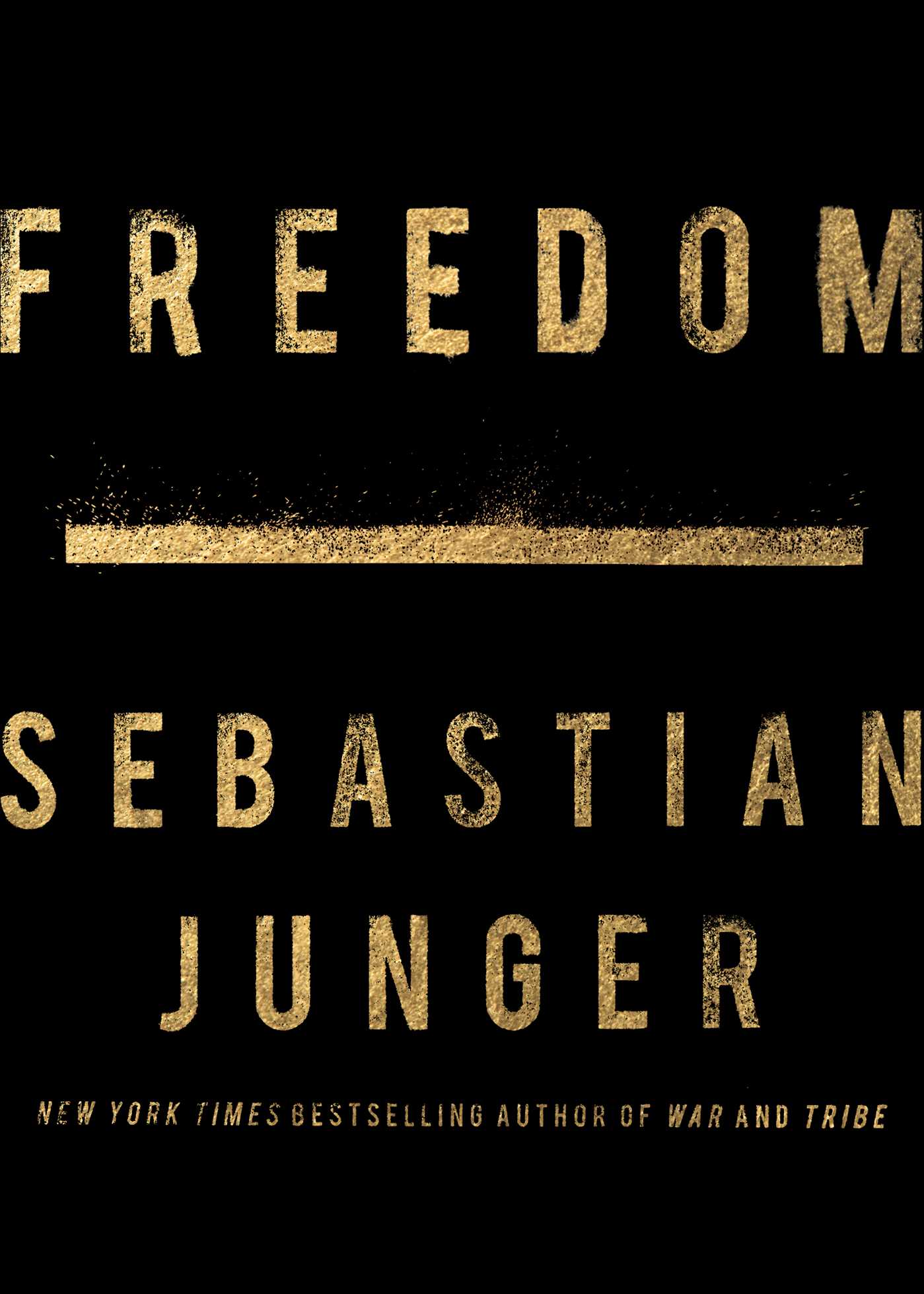“it takes a veering route, up & backwards, overshooting & correcting, back down again south & west, crossing its own earlier path, changing direction, another overlap, to stop, finally, a few hairs’ width from where we began” – China Miéville, Railsea
Military readers will have a lot of time for the author of Tribe: On Home Coming and Belonging and filmmaker of iconic war documentaries Restrepo and Korengal, but Freedom won’t find itself on military reading lists in the same way that War and Tribe are.
The newest book from author and journalist Sebastian Junger is a companion piece to the HBO documentary The Last Patrol (2014). In both the book and the documentary, Junger walks 300-miles (from Washington, DC to Philadelphia, and Philadelphia towards Pittsburgh) along the railway tracks.
We know from the film he is accompanied by Spanish photojournalist Guillermo Cervera, veterans Brendan O’Byrne and Dave Roels, and Junger’s dog Daisy, but as the trip was accomplished in stages, and with different people checking in and out, Junger doesn’t name characters in the book. He prefers the first-person plural ‘we’, and writes as if the journey is continuous.
Junger and co were executing a trip he had once planned with British war photojournalist Tim Hetherington; Hetherington was behind the camera for Restrepo and Korengal and was sadly killed in 2011 while reporting on the Libyan revolution.
The men attempted to ‘recreate’ combat by living out of their rucks, sleeping outside, and trying to avoid detection by an ‘enemy’ (transit authorities and police) given it is illegal to walk the tracks. Starting in May 2012, the walk took over a year and was an avenue to talk about war, its effect on them and their friends, and why they will miss it. None of this is readily apparent in the book though, and only some will bring this much needed extra context to their reading.
An enjoyable, undemanding book, at 130-pages it is a quick read, and I enjoyed that rural America itself is the main character. Junger provides a localised historical perspective on their surroundings as they stomp, and his meandering reflections tell the stories of Native Americans and early settlers. Loosely grouped in three parts, titled ‘Run’, ‘Fight’, ‘Think’, the book draws upon a broad church of anecdotes and examples related to ‘freedom’ and jumps from Ireland’s Easter Uprising to the fantastic reaction time of Muhammad Ali’s fists in a boxing match.
I’m reaching for leadership lessons for junior leaders, but I think the most apparent is the way some individuals may struggle with returning; reconnecting with their home and their new normal after deploying to war zones or on peacekeeping and humanitarian aid and disaster relief missions.
Our teams will employ different mechanisms, consciously or unconsciously, to process any moral injury incurred because, even if they are necessary and legal, the actions committed in war are by their very nature morally egregious and upsetting. For some, it may be sufficient to sit on a beach and drink a coffee, attend a football game, or surround themselves with their family and friends; and for others it may be necessary to ‘patrol’ the railway tracks to process their experience and reflect on surviving combat. We should seek to support and enable them to do so where possible.
The Last Patrol addresses this better and more directly than Freedom and unfortunately the book doesn’t stand well alone. I didn’t come away with a new perspective on the ethereal concept of ‘freedom’, but I did learn a lot from Junger’s historical examples and was left thinking wistfully about when I could next go multi-day hiking.
Absent the inherent drama of Junger and Hetherington’s war films, the pace is slow and exploratory. The back cover calls the book a “rumination on the concept of freedom” and it’s harder to find a more apt summary. Ultimately, Junger’s tale reminds of my favourite book about trains and rail lines: Railsea by China Miéville. As per the framing quote above, Junger’s train of thought doesn’t keep to a straight line. It switches track, jumps physically and temporally, and can be a mildly bewildering to navigate without its companion The Last Patrol.
About the Author: Samuel J. Cox is the editor of Grounded Curiosity. Find him on Twitter.

